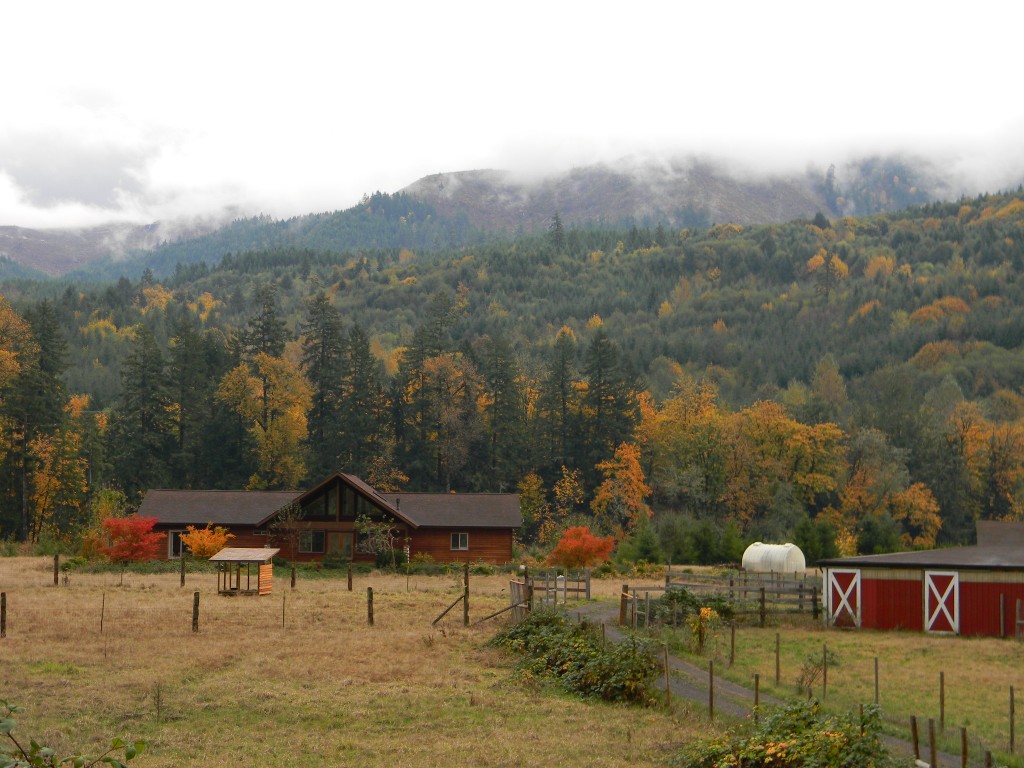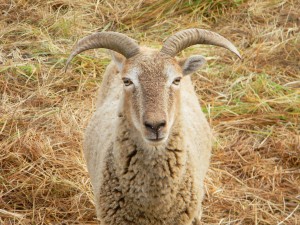Okay, that’s passing the buck–blame me. Let’s get the bad news out of the way up front: book four of the Strongbow Saga will not be released this year.
Those who have been following my posts since the beginning of this year have some idea of the many changes my life has seen this year. My wife, Jeanette, and I have literally remade ourselves and our lives. For some years we’ve been planning to eventually move from Texas to the Pacific Northwest, once a number of family obligations were settled and we could relocate on our own. Partly our desire was because we found the area–and in particular, the Willamette Valley in Oregon–so beautiful, and partly I needed to move for health reasons. Some years ago I developed Multiple Sclerosis. Fortunately, it is currently fairly mild and under control, but high heat and humidity–the weather eighty percent of the year in Houston–make the disease worse, whereas a colder climate can help alleviate its symptoms. Texas was literally making me ill. Early this year, all of the necessary pieces finally fell into place, and we made the move.
We really had not intended to buy a farm. We were envisioning a little land, maybe an acre or so, on the outskirts of Eugene. The Norns had a different plan for us. Three days after arriving in Eugene, we saw a small farm on the McKenzie River, in the foothills of the the Cascade Mountains. It was a bank-owned property, the result of a foreclosure, that had only days before come on the market, and which had been vacant for five years, so the land, and to a lesser degree, the house itself, were in neglected condition. We did not care–it was love at first sight.

The farm in autumn, when the leaves paint the forest in brilliant hues and low-hanging clouds often wreath the mountains across the river.
Neither Jeanette nor I have ever lived on a farm. We’ve both been city folk all our lives: she was a nurse, I worked in law enforcement and as a lawyer. This has been an amazing year of transition and transformation for us. We have learned countless new skills, and have discovered talents we did not know we possessed. We’ve transformed part of a former horse barn into a large poultry coop, which now houses a rooster, five hens, and three ducks, all of which we raised from chicks (or I guess ducklings, in the case of the ducks). Although we are far from being totally self-sufficient, we have learned the pleasure of living off of the fruits of our own labors, and the rhythms of a lifestyle that more closely revolves around the seasons. Now we go into the long winter ahead with two freezers (a wonderful convenience the Vikings did not have) and storage racks well stocked with all kinds of harvest from the summer and fall: a bounty of vegetables from our garden; wild berries gathered from our land; apples from an ancient tree which will be the anchor, in future years, of a small orchard of fruit and nut trees we’ve planted around it; fish caught from the river that runs behind our home; chickens–a gift from neighbors who were reducing their flock–we somewhat hesitantly killed and processed ourselves; and even an abundance of venison from a huge, beautiful buck we harvested. Every morning we collect the eggs our chickens give us. This has all been an amazing experience for two people who, before this year, hunted and gathered only in the supermarket.
Because this was formerly a horse property, its five acres of land are all pasture–which becomes hay, if not grazed. Oh, the hay! Call us crazy, but we chose to approach the issue with ancient methods the Vikings themselves might have used: we’ve learned to scythe, and by hand have cut, dried, and hauled to the barn significant amounts of the land’s hay, which will provide bedding and feed for our animals over the winter. But because there was more hay than we could possibly deal with on our own, we also enlisted the aid of some prolific grazers. In early summer, we learned that the Oregon owner of a herd of Soay sheep, relatively few of which are found in this country, was selling off some of his herd–surely part of the Norns’ plan for our new lives. Soay sheep are, based on DNA testing, the oldest existing breed of domesticated sheep. They originated on the island of Soay off the coast of Scotland. The name Soay comes from the Vikings themselves–it’s derived from Old Norse words meaning “Island of Sheep.” So we now have a small herd of five heritage sheep such as the Vikings themselves might have seen. They are fascinating, beautiful creatures, whom we greatly enjoy–they look more like small antelope than modern sheep–but they have added much work to our lives this year.
Our five acres of pasture were already divided into many smaller sections, suitable for rotational grazing. But the existing fencing was for horses, not sheep, and no gates remained anywhere–apparently they were sold off by the former owners (as were all appliances in the house) when they realized they were facing foreclosure. Being city folk, we had no idea how fast five sheep could eat down a small pasture. For some of the smaller sections, the answer proved to be less than a week. So this summer and fall have been a constant scramble to stay ahead of them, putting up fence and hanging gates. A few weeks ago, we moved the sheep across the property to a large pasture away from the barn, where they should have enough to graze on for several months, but where they’ll have no access to the barn, no shelter from the rain and snow. So I have had to build them a shelter (and there is still some work to be done on it). Most of these tasks–the fencing, the gates, the shed–are one-time efforts, as was the work building a poultry coop in the barn. But I naively did not anticipate how much writing time would be lost reclaiming this farm from its neglected state. And I was so naive to continue to think, as the months wore on, that, with all that Jeanette and I were undertaking, I could also finish writing book four, plus edit it–with the help of a volunteer editorial board of writers and readers–and finally format it for publication in e-book and print editions, all by the end of this year.
I know many of you have been waiting a long, long time for the next book in the series, and I apologize from the depths of my heart for failing to deliver it this year as promised. But for Jeanette and me, this has been, without question, the most amazing, wonderful year of our lives, an experience I could not have anticipated, and would not trade for anything. And living this close to nature, and–to the extent that we have–off of the land and our own labors, has helped bring me a closer understanding of how life was lived in an earlier, simpler time. It will enrich the details of Halfdan’s life and story, and has already changed and added to aspects of book four.
Western Oregon’s long winter of almost constant rains, punctuated by occasional snowfalls, has begun. I understand now that in my new life, the winters will be the season of writing, and in the spring, when the land awakens anew, my books will come forth. Look for book four of the Strongbow Saga in the spring of 2013.


